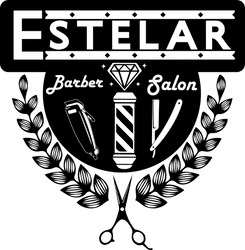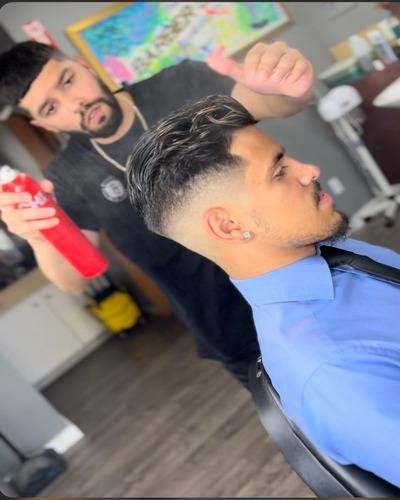Barbershops and salons hold a unique and significant place within communities, especially the black community roles as a whole. These establishments not only provide essential grooming services but also act as hubs of connection, cultural preservation, and empowerment for black people. In this article, we explore why salons and barbershops, particularly those serving the African American community, play crucial roles in fostering community development and empowerment.
The Historical Significance of Barbershops and Salons During Emancipation:
Barbershops have a rich history dating back to the 19th century, where they became important gathering places for black men to congregate during the era of emancipation. Although men’s barbering has been around for ages. These barbershops provided more than just a a place to get a haircut; salons and barber shops became havens for open dialogue, community building, and the exchange of ideas.
Similarly, salons have played a vital role in providing hair care and nurturing black culture, as well as culture in America. Often serving as a social club for creativity and self-expression.
Alonzo Herndon: The Inspiring Journey of the First Black Barber Millionaire
During this time period one of the first black millionaires Alonzo Herndon. Alonzo Herndon, a remarkable entrepreneur and trailblazer, holds a prominent place in history as the first African American barber to become a millionaire.
Rising from humble beginnings:
Herndon’s remarkable journey and entrepreneurial spirit serve as an inspiration to aspiring business owners. A testament to the power of determination and resilience. In this article, we delve into the life and achievements of Alonzo Herndon, highlighting his remarkable success in the face of adversity.
From Humble Origins to Entrepreneurial Success:
Born into slavery in 1858, Alonzo Herndon faced immense challenges early in his life. After emancipation, he worked as a farm laborer and later found employment as a barber. Recognizing the potential of the barbering trade, Herndon honed his skills and established himself as a highly skilled and respected barber in Atlanta, Georgia.
The Birth of a Business Empire:
In 1902, Alonzo Herndon took a bold step and opened his first barbershop, the Union Savings Bank and Trust Company, which provided financial services to the black community. This venture marked the beginning of his business empire. With his astute financial acumen and determination, Herndon expanded his interests into real estate, insurance, and other profitable enterprises. He founded the Atlanta Life Insurance Company, which became one of the largest African American-owned insurance companies in the United States.
Herndon’s Commitment to Community and Empowerment:
Beyond his financial success, Alonzo Herndon was a dedicated advocate for social progress and community upliftment. He used his wealth and influence to support educational initiatives, philanthropy, and civic engagement. Herndon’s commitment to empowering the African American community was evident in his efforts to provide jobs, housing, and economic opportunities.
Legacy and Lasting Impact:
Alonzo Herndon’s remarkable achievements and contributions to the African American community continue to resonate today. His success shattered societal barriers and inspired generations to pursue their entrepreneurial dreams.
Herndon’s story highlights the importance of perseverance, strategic vision, and a strong commitment to social progress. His journey from a humble barber to a millionaire entrepreneur serves as a beacon of hope and a reminder that success knows no boundaries.
barber Community Roles and Empowerment:
Cultural Preservation and Identity:
Barbershops and salons serve as cultural landmarks, preserving and celebrating black culture. Trained black barbers play a pivotal role in maintaining and passing down grooming traditions, styling techniques, and hair care practices unique to African American communities. These barbershops act as custodians of heritage, ensuring cultural pride and connection are upheld. Much of barbershop culture is based on black folks history and traditions.
Safe barbershop Spaces for Open Dialogue:
Barbershops, beauty shops and salons provide safe spaces where patrons can openly speak freely to discuss various topics, including social, political, and personal matters. These establishments become platforms for critical conversations, offering a sanctuary for candid discussions on community affairs, health education, and personal experiences. Barbers and stylists often serve as confidants and mentors, supporting their clients through genuine interactions.
Economic Empowerment and Entrepreneurship:
Barbershops and salons contribute significantly to the local economy. They serve as catalysts for entrepreneurship and small business development, allowing individuals to establish and grow their own businesses. Through job creation and the patronage of local establishments, barbershops and salons stimulate economic activity and foster financial empowerment within the community.
Barbers today attend barber college and are members of national associations. Trained barbers are constantly learning new techniques and styles.
Mental and Emotional Well-Being:
These spaces provide more than physical transformations; they offer emotional support and a sense of belonging. Barbershops and salons serve as refuges where individuals can escape the challenges of everyday life and connect with like-minded individuals. They become places where men and women can relax, share stories, seek guidance, and build lasting friendships.
Recreation and Sports:
Barbershops are not only spaces for grooming and community engagement but also venues where various games and activities take place. These games add an extra layer of entertainment and camaraderie to the barbershop experience. One common game played in barbershops is chess, a strategic board game that challenges the players’ critical thinking skills.
Chess matches between barbers and customers or among barbershop patrons create an atmosphere of friendly competition and intellectual stimulation. Additionally, games like dominoes or checkers are often enjoyed in barbershops, providing a chance for socializing and friendly banter.
These games foster a sense of community, allowing patrons to relax, bond, and have fun while waiting for their turn in the barber’s chair. The barbershop environment becomes not only a place for grooming but also a space for leisure and social interaction through these engaging games.
The barbershop is also a great place to watch sports as you wait for your haircut!
Community Outreach and Support:
Local Barbershops frequently engage in community outreach programs, addressing social issues and providing support to vulnerable populations. They offer resources, mentorship, and services to uplift community members, especially young people.
These establishments become beacons of positive change, actively working to improve the lives of those around them. The barber industry and local barbershops continue to give back to their community and the world around.
Conclusion:
Barbershops and salons are much more than places to get a good haircut, shave or a stylish makeover. They represent vital spaces within communities, playing essential roles in cultural preservation, economic empowerment, dialogue facilitation, and community support.
By embracing their historical significance, these establishments continue to provide a space for connection, empowerment, and personal growth. As barbers and stylists nurture and engage with their clients, they contribute to the well-being and strength of individuals and the entire community at large.
For more information about starting a career as a barber click here

